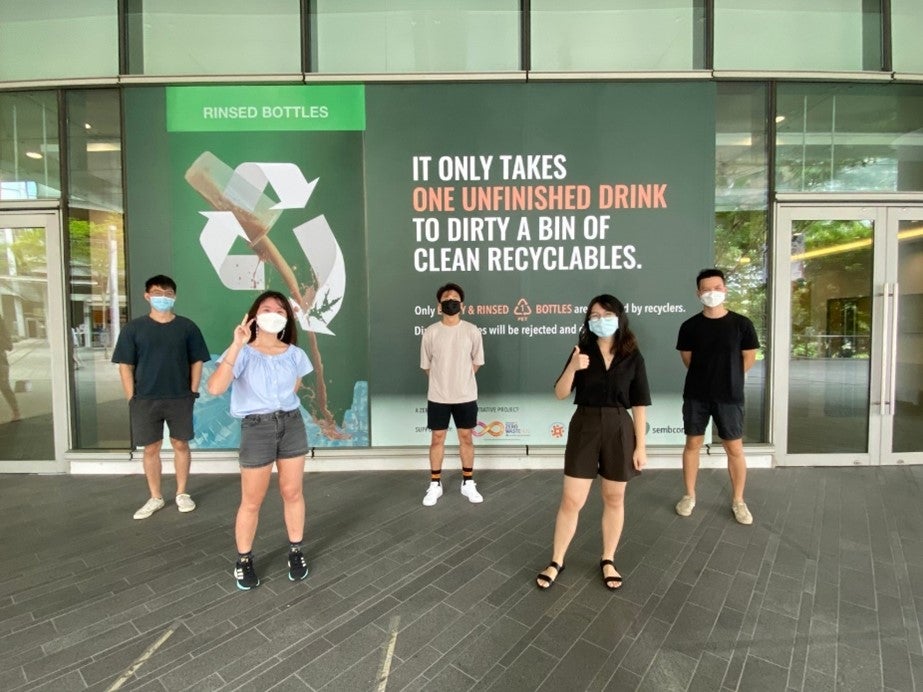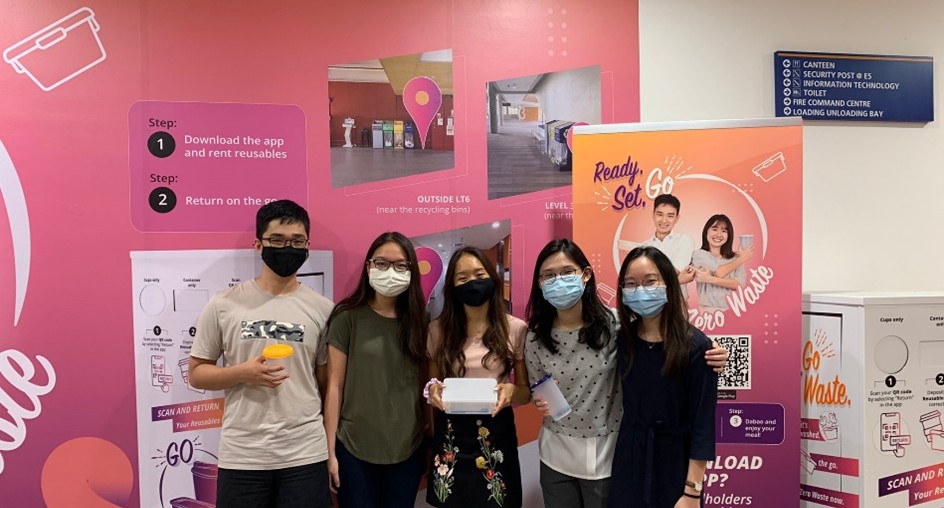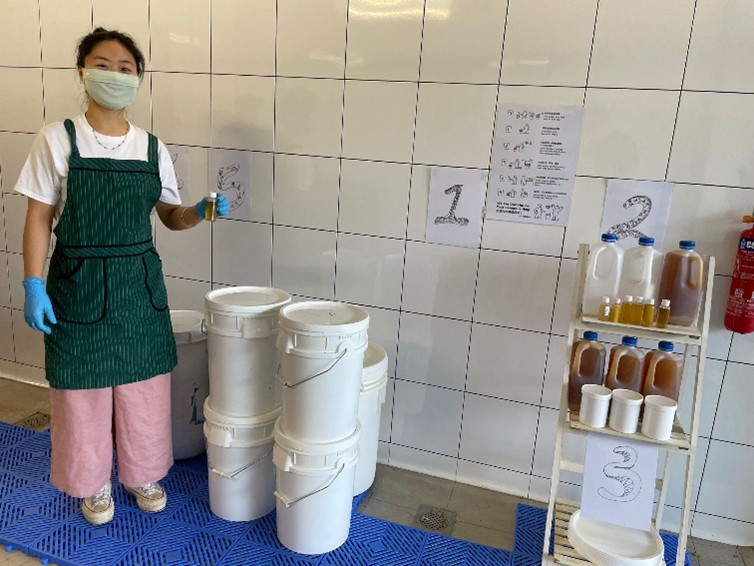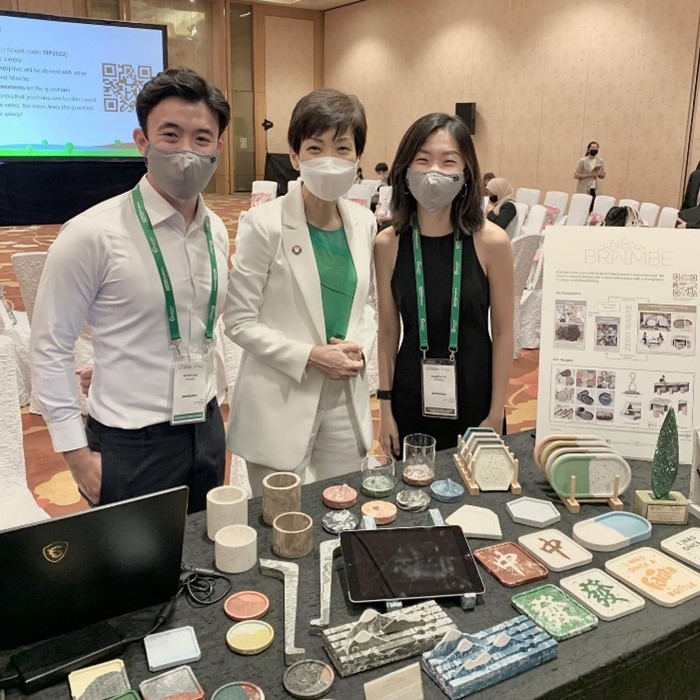Collaboration - Zero Waste Testbed Initiative
The Zero Waste Testbed Initiative is organised by NUS and South West Community Development Council (South West CDC) to empower and support youths in the co-creation of innovative solutions towards zero waste and circular economy through test-bedding of proof-of-concepts within the NUS campus.
This is an opportunity for teams to obtain up to $10,000 in project funding and mentorship by industry and government practitioners in the implementation of their ideas.
Applicants are welcome to contact Mr Yang Chang Jye (YANG_Chang_Jye@pa.gov.sg) and Ms Mindy Ong (mindy_ong@nus.edu.sg) with project ideas or proposals related to waste minimisation.
For topics, applicants can refer to the other problem statements below, as well as the awarded projects on Recycling Right, Promoting Reuse and Waste to Resource for reference.
Project Topics
The Recycle Right bins with behaviourally-informed design have shown to be effective in getting people to recycle right, with contamination rates of plastic bottle recycling bin reducing by more than half in both a campus and public space (shopping mall) setting. The bins have the following key features:
- A clear display with actual non-recyclables that highlights concretely what should not be placed inside the recycling bins
- A slidable opening lid that adds friction to reduce mindless, habitual throwing of non-recyclables
- A transparent bin body that showcases the accumulated clean recyclables
The current bins are made of mostly powder-coated mild steel, except for the display and body which are made of acrylic. This design and materials have contributed to its aesthetic look, but its cost is higher than that of plastic. However, the production of plastic bins requires a high upfront cost of a plastic mould.
With the objective of retaining the key features/intentions of the bins that have resulted in its behavioural efficacy, how might a new bin be designed (e.g. innovative design to reduce material use or alternative materials) to be implemented in more premises (e.g. schools) (i) at a lower production cost and/or (ii) drive the contamination rate towards zero?
Awarded Projects
First Edition
Recycling Right: Publicity to Reduce Recycling Contamination Rate [completed]

The team, RecyCLEAN, aimed to reduce recycling contamination rate through an evidence-based publicity campaign, comprising large wall publicity decals and Instagram educational campaign. This was implemented in UTown in September 2021 and resulted in an overall 10% decrease in recycling contamination rate. Read more about the project here.





